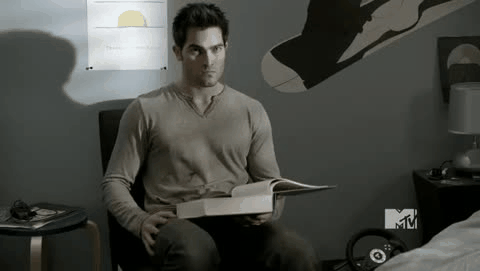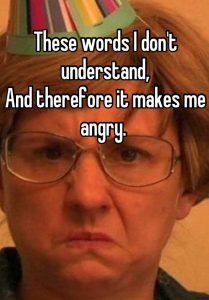In recent weeks, as the mountains burn above my head and machines give walnut trees a violent hug, I have found myself once again in the midst of allergy season. Mind you, due to the drought in my state, every season is now technically allergy season. But recently I have no choice but to spend my days halfway between the realms of life and death. Unfortunately, limbo is boring. I know, I know, it’s better than hell itself but I’ve found myself with not a whole lot to do as I wait for someone to finally complete the rituals to raise my corpse. So I decided last week to make an effort to finish all the books on my shelf, including the ones I didn’t actually intend to buy.
I’m sure that sounds like I have some sort of collecting problem, but it’s actually a little more mundane than that. Due to a blood pact I signed with a book of the month club several years ago, I have quite a few books sent to me that I kept simply out of being lazy. These books aren’t necessarily bad, just not something I had any real interest in, but several are at least in a genre I am willing and able to enjoy. So, getting over my distaste for some of the authors, I picked one up and started reading.
But, after a few chapters, I have regretted my life decisions.
Stephen King often said that one of the benefits of writers constantly reading is realizing that published works can be terrible too. He also called the author I’m currently reading a terrible writer. And, while I haven’t finished, I’m already guessing Stephen was right on both counts. I won’t name the book, or even the author. It’s actually true that bad reviews still generate sales. But I can tell you that I checked several times to confirm this was a New York Times Bestseller in my hands, so they’ve clearly conned enough people already.
It’s actually amazing, in this day and age, just how many books can be sold. People take it for granted because we’ve always lived in this advanced society, but once upon a time you would be hard pressed to find someone who could read – let alone afford to spend money on books. Reading was the hobby of the wealthy, sophisticated upper class and was essentially the domain of bored nobles who needed to escape from the day to day grind of not getting syphilis. Today, in a world of 7 billion people, over 86% of those can now read.
So why do the best selling books all seem to be determined to treat us like idiots?
Simply Put

Some time ago, and probably sometime in the future, I amused myself by taking nice big shits on the work of Stephenie Meyer. Directed at the young or the desperately lonely, Meyer’s work took the world by storm and took the English language to task. There are entire websites devoted to just how clunky and ugly her writing happens to be. And for the longest time I was under the impression that she was a bestseller despite her writing style. It was only after reading the work of this more respected author that I have come to wonder if maybe, just maybe, it was actually because of her writing instead.

It’s been something appearing more lately, the idea that the most popular books often talk down to many of the people that read them and aim for the lowest common denominator. The entire YA genre has been accused of it in the past (several rightly so). But the general impression has often been that this is because it’s aimed for a younger audience. Yet, here I sit with a copy of a book meant for simply “Adults” and find myself wishing that it had the depths of the YA books so often derided. What the hell happened?
The average paragraph is 2 sentences long, the average chapter is roughly 3 pages, and no chapter I’ve gone through yet has actually had anything resembling substance. In fact, by the fifth chapter, you would be forgiven for not knowing what any of the characters look like, what their personalities are like, or why you should give a shit. The one actual point of character development I did see in those early chapters was presented as a non-sequitur as the narrator essentially told us that the plot happening at this very moment wasn’t, in fact, the interesting part of his life. Instead I got to see the narrator tell us of the time he met this woman at a museum who, as of yet, has no purpose to the plot in question and had no reason to be brought up at the time she did.
Until she’s important, I will mentally refer to her as Chekov’s Ex.
I understand, in part, why everything is so brief. So many instructions from so many writers say you should write as though your audience has no attention span. In the eyes of so many tutorials we’re meant to look at the audience like gold fish or ferrets. But that excuses style alone, not substance. Even as this man cites a museum as his favorite place, I have no idea what this place looks like, what kind of environment it has, or whether or not I would enjoy being there myself. For a medium meant to paint an image with words, I find myself feeling more like I’m listening to the narrator drunkenly slurring his story over a beer in the middle of the night – breaking off into wild tangents and losing any sense of the plot along the way. Yet, that drunken moron is apparently a New York Times bestseller.

Every writer knows that you’re supposed to show, not tell, and yet I’ve been reading a book that proves you can go ahead and throw those rules out the window provided you have a big enough name. I can see, from the sales figures, that this author can apparently just ramble a story onto a page through a third party and be considered a success. And the thing is, unlike Meyer, I know this author actually knows what they’re doing because they’ve done it for decades. Their fiction is crafted as a product designed to sell as many copies as possible. They are, while not a good “writer”, incredibly well educated about the marketplace. And from that research, they deemed that we don’t just lack an attention span, we need it broken down into the smallest, insubstantial pieces possible – like babies. So when did we, as a society, decide that being treated as idiots was somehow acceptable?
There’s always an impression today that people, in general, simply don’t like to read. I know that children have to be coaxed to do it for the most part and adults often feel like they simply don’t have the time. However, we know children are more than happy to read if given the right material, and everyone has seen at least one person twiddling their thumbs on the subway or waiting for a plane. So it’s generally not a matter of whether or not people enjoy or have the time for reading, just whether you can get them to start at the right time with the right book. Yet this pervasive impression that people don’t like to read has meant that a lot of guidelines put forth to writers basically say “don’t be a challenge, it makes them angry”.

Where, exactly, do we draw that line? Do we need pretentious vocabulary and convoluted plots? No, never. But can we at least have some descriptions, some dialogue, and maybe a point? Can we at least strive for having characters with personalities appear in the first 20 pages? Can we at least have complete chapters that have a reason to be considered chapters? I don’t think it’s too much to ask, I don’t think you should think it’s too much to ask, and I think people deserve better.
And, you know what? If you’re a writer too, I hope you read a book like this. I hope you realize another successful author (or even the same nameless one I refuse to sell), has basically fleeced the marketplace via media blitz and nothing else. Because King was right…
We can do better.
(I write novels. For right now, I’m going to continue fighting through this book to see if there’s something more to it before I give up and just read one of King’s instead. In the meantime, you might hear me bitch on twitter.)







